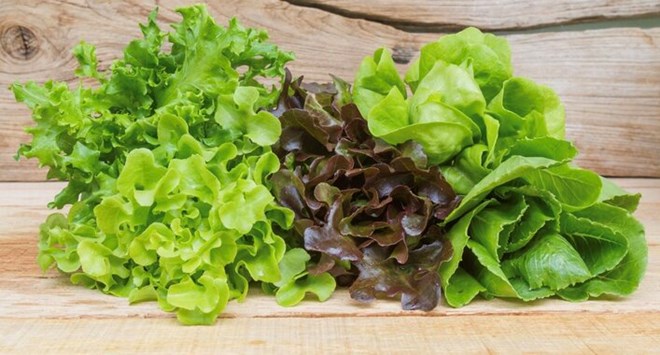Green leafy vegetables
According to Healthline, leafy greens such as spinach, kale, and kale are rich in natural nitrates and other nutrients that help reduce the risk of stroke. When you eat leafy greens, your body will convert nitrates into nitric oxide - a protein that plays an important role in regulating blood circulation and blood pressure.
A 2021 study showed that consuming at least 60 milligrams of nitrates from vegetables per day (equivalent to 1 cup of green leafy vegetables) helps reduce the risk of stroke due to local anemia by up to 17%.

Walnuts
Walnuts are a source of alpha-linolenic acid (ALA) - an omega-3 fatty acid that has the effect of reducing inflammation, improving blood circulation and lowering blood pressure, thereby contributing to reducing the risk of stroke.
In addition, walnuts also contain many antioxidants and nutrients that help protect the body from oxidative stress - a factor that contributes to stroke.
A study by the Harvard T.H. School of Public Health Chan in 2021 followed more than 93,000 people over 20 years, showing that people who eat a lot of walnuts have a lower risk of dying from all causes, especially heart disease, and often live longer than those who do not.
Citrus fruits
Citrus fruits are a rich source of vitamins and minerals such as vitamin C, folate and potassium. They also contain flavonoids plant compounds with antioxidant and anti-inflammatory properties, which help reduce the risk of stroke.
A study published in the journal Stroke in 2012 showed that consuming citrus fruits significantly reduces the risk of stroke.
Fatty fish and lean fish
Fatty fish such as salmon, fresh tuna, and mackerel are rich in omega-3 fatty acids, which help improve blood circulation and reduce inflammation. These are two important factors in preventing stroke.
Meanwhile, lean fish such as pink fish, mahi-mahi and cod, although containing less omega-3s, are rich in protein, iodine and selenium, and low in calories - factors that are beneficial for heart health.
A 2018 Dutch population study found that eating one or more gifts of fatty or lean fish per week may reduce the risk of stroke due to local anemia.
The 2018 overview of 5 other studies also found that lean fish, including scallops and shrimp, can bring benefits to prevent stroke, even surpassing fatty fish.
Yogurt
Yogurt is a source of important nutrients for heart health such as calcium, potassium and probiotics. According to Healthline, consuming more yogurt and milk will help reduce the risk of death and serious cardiovascular events, including stroke and myocardial infarction.











